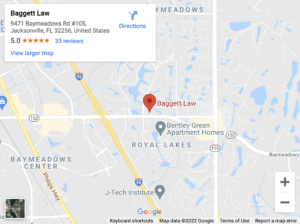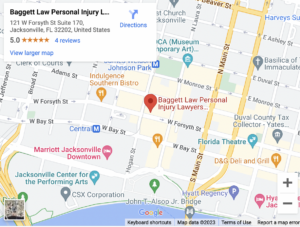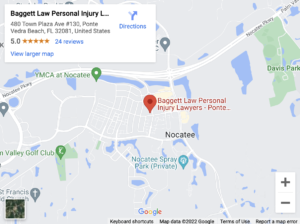
A tort is a conduct that causes someone injury or harm, which could result in liability for damages. For example, if a driver causes an accident that results in serious injuries, the victim may sue the driver for damages to compensate the victim for the damages and harm caused by the negligent driver.
Defendants in personal injury cases are often individuals or companies. Government entities may also commit negligence that causes someone to be injured. However, government entities are protected by sovereign immunity, which prevents them from being sued unless the government gives the victim permission.
Florida law waives sovereign immunity for many tort actions. Even so, government tort claims are complicated personal injury cases because there are different rules for suing the government in Florida than suing private parties. It is crucial to seek legal advice from an attorney who has experience handling government tort claims.
Special Notice Requirements for Government Tort Claims in Florida

For state claims, the Notice of Claim must be filed with the Department of Financial Services, but for local government entities (e.g., cities, counties), the Notice must typically be filed directly with the relevant local agency or governing body. One of the special rules for government tort claims is the Notice of Claim.
The Notice of Claim must be filed with the state within three years of the injury (two years for wrongful death claims). The government has 180 days to respond to your claim. You cannot file a lawsuit until the government responds or the 180-day period ends.
The general statute of limitations for filing a government tort claim is three years. If you miss the deadline, you could lose the right to pursue a claim for damages.
How Do I File a Government Tort Claim in Florida?
The government tort claims process begins when you file the Notice of Claim with the government. It will assign a claims adjuster to investigate your claim and determine whether the state is responsible for your injuries and damages.
If the claims adjuster agrees that the state is responsible for your injuries, they can negotiate a settlement for your damages. However, if you accept a settlement offer and sign a release, you cannot change your mind later. This is why you should consult an attorney before accepting a settlement offer or signing any documents for the state.
If the claims adjuster denies your claim, you can file a lawsuit to have the matter tried in court. The government could settle the lawsuit before trial or take the case to trial to allow a jury to determine whether it is liable for your damages.
What Damages Can I Receive if I Sue the Government for Personal Injury in Florida?
In a government tort claim, you can seek compensation for your economic and non-economic damages. Damages you may receive include:
- Medical bills and expenses
- Emotional distress and mental anguish
- Impairments, disfigurements, scarring and disabilities
- Rehabilitation and therapy
- Pain and suffering
- Lost wages and benefits
- Diminished earning capacity
- Loss of enjoyment of life
- Out-of-pocket expenses
Punitive damages are not permitted in a government tort claim. You are only permitted to receive compensatory damages for a government injury claim.
Florida’s modified comparative negligence law, which took effect on March 24, 2023, applies to both general negligence claims and government tort claims. Under this law, if you are found to be 50% or more at fault for the injury, you will be barred from recovering any damages.
Caps on Damages for Claims Against the Government in Florida
Florida law caps damages for government tort claims. Regardless of the value of your damages, tort claims are capped at $200,000 per person and $300,000 per occurrence for state entities and $100,000 per person and $200,000 per occurrence for local government entities. You can petition the legislature for additional compensation, but there is no guarantee it will agree to pay more for your claim.
Examples of Government Tort Claims in Florida
Almost any personal injury or accident involving a government property or employee could result in a government tort claim. Examples of government tort claims include, but are not limited to:
- Abuse in a government medical facility, nursing home, or assisted living facility
- Medical malpractice
- Premises liability claims, including slip and fall accidents
- Injuries caused by poorly maintained government structures, facilities, roads, etc.
- Wrongful death
- Traffic accidents involving a government vehicle or employee
Before recovering money for damages, you must prove the legal elements required for a government tort claim. For a negligence-based claim, you must establish that the government owed you a duty of care and that it breached its duty. You must also have evidence that the government’s breach of duty was the direct and proximate cause of your injuries and that you incurred damages because of their breach.
Contact a Jacksonville government tort lawyer at Baggett Law Personal Injury Lawyers for a free consultation to discuss your legal options. You can call us at (904) 396-1100.




